Carney doubles Freeland in caucus support, tops Liberal leadership polls
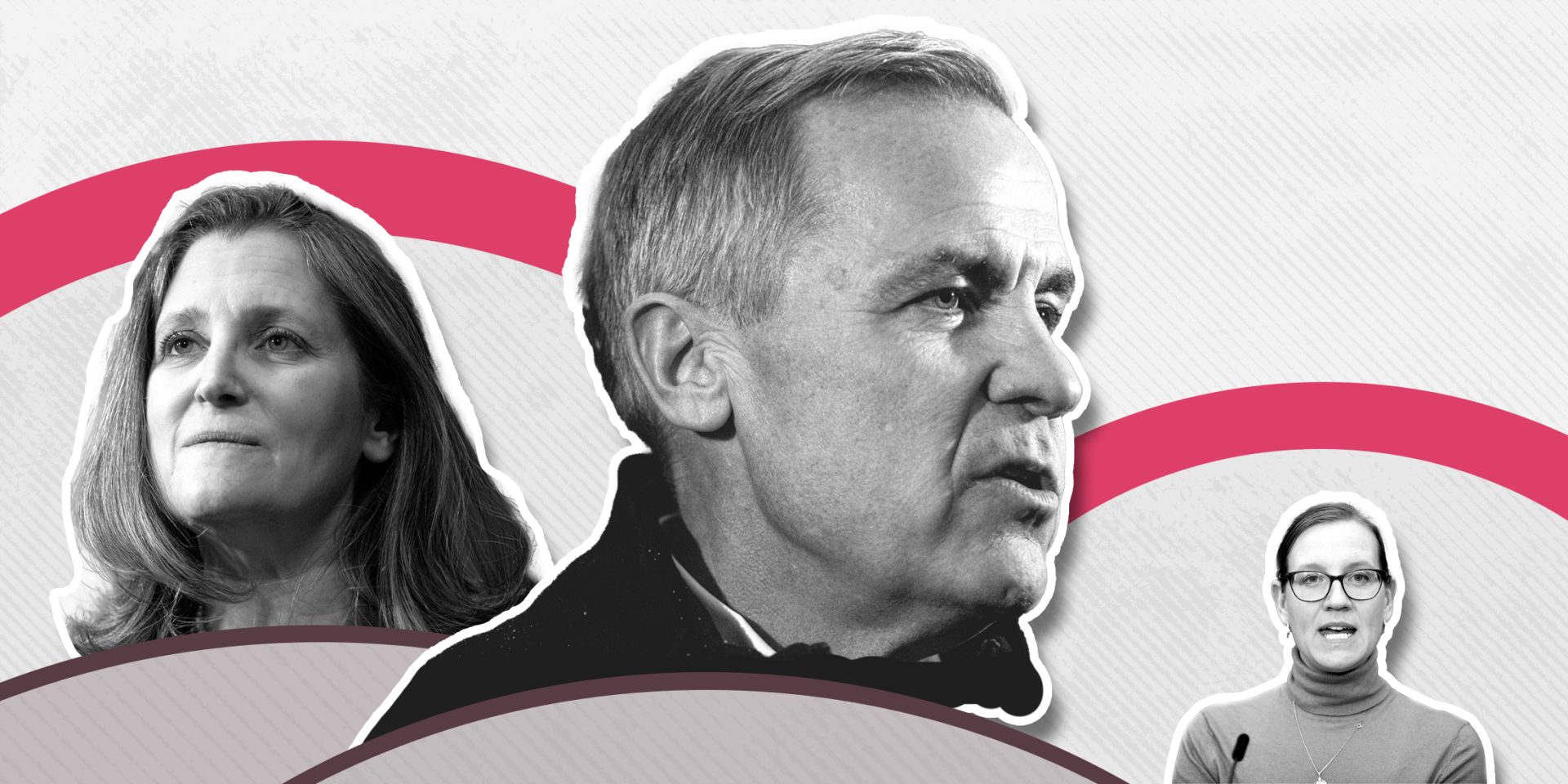
Liberal leadership contender Mark Carney is dominating the race with at least 62 caucus endorsements, including capturing nearly two-dozen ministers who have worked closely with leadership rival Chrystia Freeland. But there’s still more than one-third of Liberal MPs who have yet to register their opinion, including 13 from cabinet.
The three highest-profile candidates are the only ones to garner any caucus support so far, with former Bank of Canada governor Carney ahead of ex-finance minister Freeland’s (University-Rosedale, Ont.) 25 MPs as of Jan. 30. Former government House leader Karina Gould’s (Burlington, Ont.) has the support of two MPs.
That means more than half of the 153-member Liberal caucus has picked a side, with 88 MPs declared for the three highest profile candidates, according to The Hill Times’ tally of ongoing endorsements. That still leaves about 65 MPs left to publicly endorse any of the candidates, though some have said they plan to remain neutral.
With those numbers for Carney, it’s no surprise he’s leading on every metric—from the backbench to the front—pulling 20 ministers to Freeland’s four from the current cabinet that was reshuffled in late December. Freeland also has at least four former ministerial colleagues saying she’s the best next leader. The parliamentary secretaries are also more likely to pick Carney, with nine to Freeland’s five.
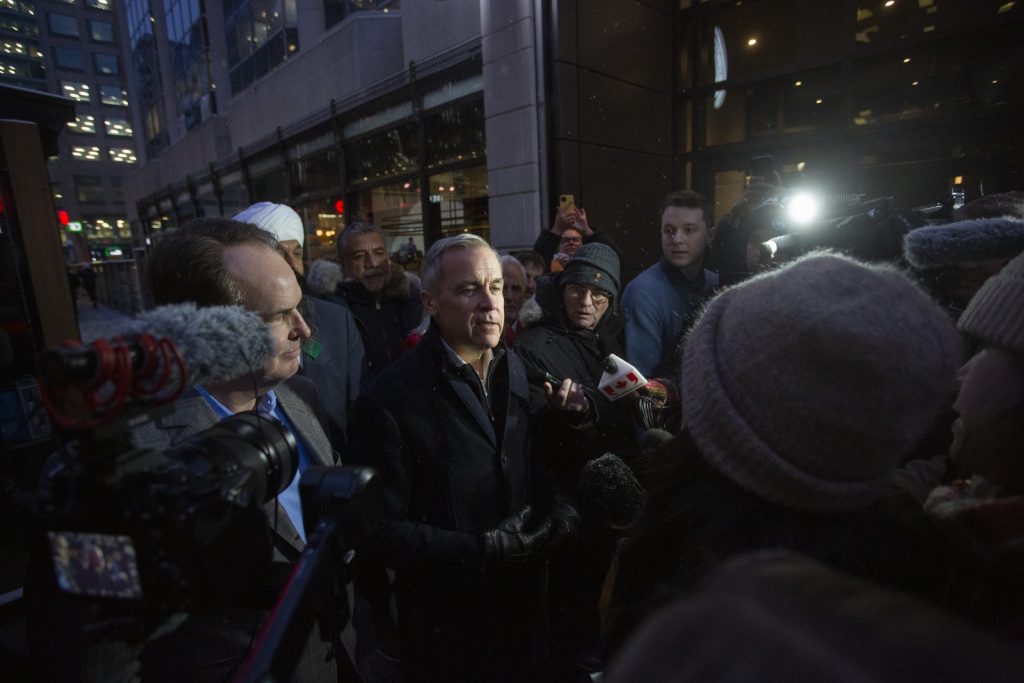
As for regional diversity, both of the front-runners have support from MPs representing ridings from across the country, but the economist leads on all fronts. One-third—11—of the Liberals’ Quebec caucus have his back, while four are for Freeland. Half of British Columbia’s 14 MPs picked him, while the former deputy PM has a trio of MPs in her West-Coast corner.
Carney has 12 MPs from Atlantic Canada, whose caucus played an outsized role with this government, and was among the more vocal pushing Prime Minister Justin Trudeau (Papineau, Que.) out. Among their number is Jaime Battiste (Sydney-Victoria, N.S.), who exited the leadership race on Jan. 30 and announced he is supporting Carney. The Liberals hold 23 of the region’s 32 seats, with one Liberal seat still vacant awaiting a byelection call. Freeland, meanwhile, has two MPs from the four provinces, split between Newfoundland and Labrador and Nova Scotia, with no New Brunswick or Prince Edward Island MPs on her list.
Nearly half of Freeland’s caucus support comes from the province she represents with a dozen Ontario MPs, but Carney still leads on that front with 28. The 75-member Ontario caucus represents more than half of the 121 elected to represent the country’s most populous province.
Despite his deluge of support, Carney’s campaign is framing him as an outsider. While Freeland—Trudeau’s once right-hand woman—can’t adopt that conceit, she has suggested Carney is the Prime Minister Office’s pick, and is using the line-up of cabinet endorsements to illustrate her argument.
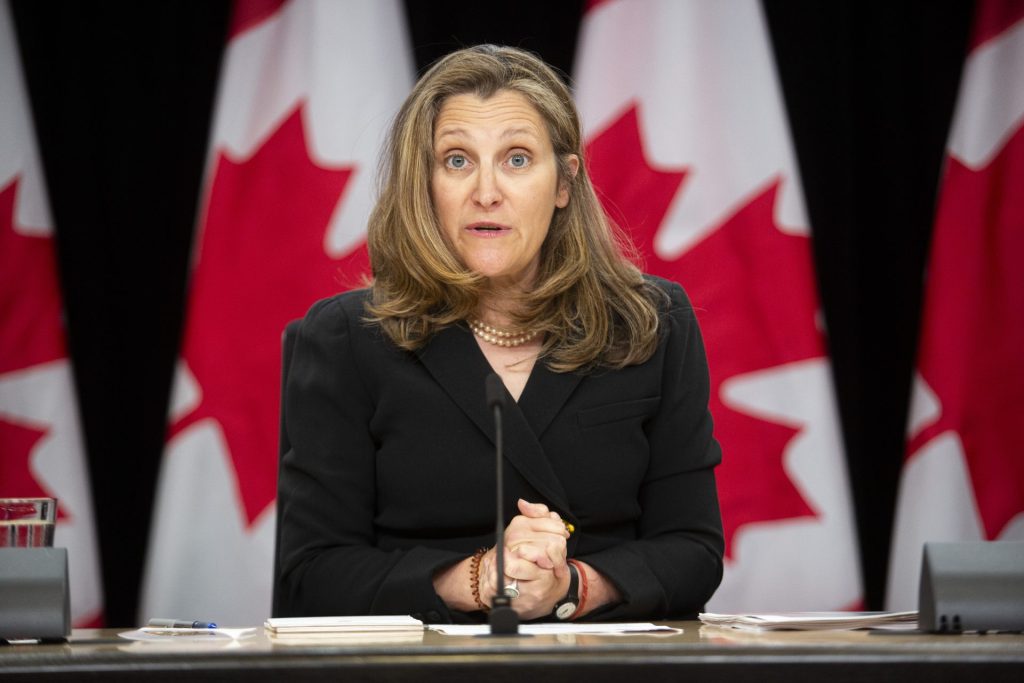
For Carney, the optics of presenting as an “outsider,” but appearing in photo-ops, events, and videos with cabinet ministers presents a messaging disconnect, suggested Conservative strategist Fred DeLorey on a Jan. 28 episode of The Bridge podcast.
“That’s a big problem with your narrative. If your story is about building something new, you don’t hang out with the folks who tore things down,” said DeLorey. “For me, it’s a simple lesson. If you have endorsements, you’ve got to use them strategically, and you got to make sure that they advance your narrative.”
Do endorsements matter?
From DeLorey’s experience managing three previous Conservative leadership campaigns, caucus support is the “classic double-edged sword of politics” that “delivered very little in terms of actual tangible results” for his contenders.
“They bring risk and reward, and in my experience, the risks sometimes outweigh the reward,” said DeLorey, who ran Erin O’Toole’s campaign for the Conservative Party’s top job.
Bruce Anderson, who said he is advising Carney, disagreed with DeLorey’s assessment of Carney, saying the Liberal and Conservative contexts are different.
“I think the local MPs’ point of view does matter,” he said, especially in the context of the Liberals far behind in the polls, “staring an election in the face where a lot of MPs might lose their seats, where the Liberal Party might be reduced to third or fourth place.”
Party members are looking for a path out of that scenario, and in that sense, they are “looking for signals from people who are, front and centre, talking with the candidates” like those in caucus.
In 2022, before Conservative Leader Pierre Poilievre (Carleton, Ont.) scored a decisive victory, he also led the pack in caucus support, with more than half of Conservative MPs publicly stating their preference for him. The 2020 campaigns and 2017 contests featured closer counts in caucus support, and they didn’t necessarily lean toward the winning candidate. In 2020, Peter MacKay mounted an early lead with the majority of caucus support, but eventually fell to O’Toole. And in 2017, O’Toole had the most with 31 MPs, but only finished third. Two-dozen MPs backed the eventual winner—Andrew Scheer (Regina-Qu’Appelle, Sask.)—while runner-up Maxime Bernier had the backing of only seven MPs.
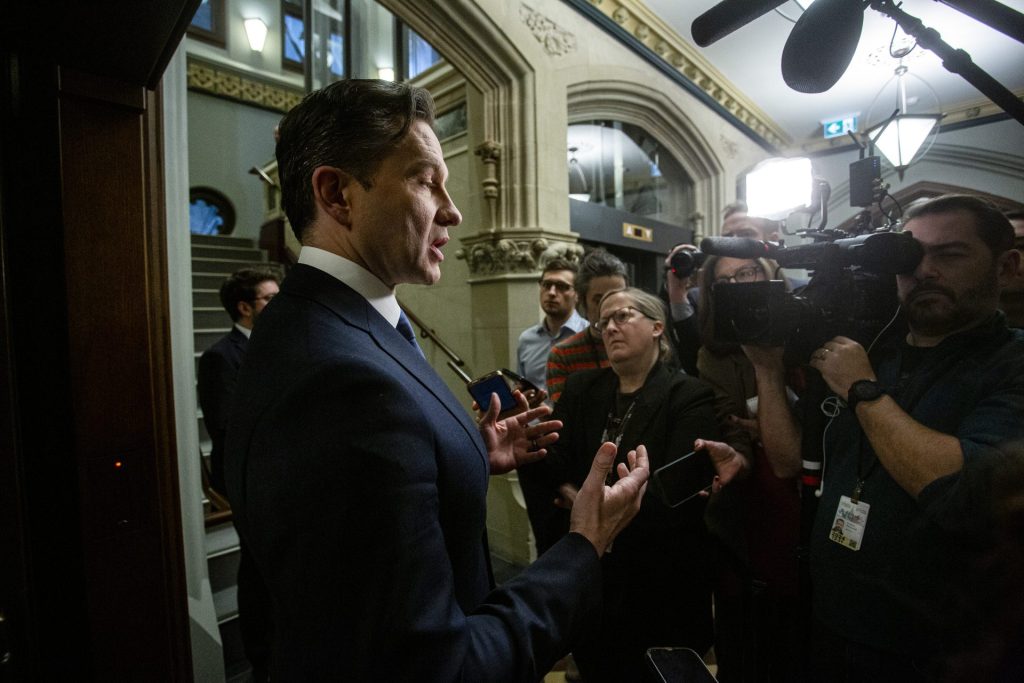
DeLorey said some MPs bring baggage with their support, and for “every great one,” there’s often another person bringing distractions and demands to the campaign team.
DeLorey said during the successful O’Toole campaign, he was clear with his expectations.
“You had to endorse him and push his narratives. It wasn’t about what the endorser liked about Erin,” he said. In that campaign, former minister Jason Kenney’s nod was considered a huge endorsement because he was seen as “a true blue Conservative” it lent credibility.
Carney riding high in early polls
A new poll suggests that the Liberal caucus isn’t the only audience that Carney can pull into his corner. The Abacus Data survey conducted between Jan. 22 to 26—just days after the trio made their official leadership launches—found that Carney secured stronger impressions with the general public and Liberal supporters.
The 2,205 Canadian adult respondents gave Carney the best overall rating, although none of the candidates are knocking it out of the park. Carney earned 33 per cent positive impression, 25 per cent neutral, and 20 per cent negative. Freeland had nearly equal positive and negative impressions at 29 and 30 per cent, respectively, while 23 per cent gave her a neutral grade.
“[Carney’s] positive image is one reason he could attract a larger pool of voters for the Liberals if he becomes leader,” CEO David Coletto noted in the analysis.
But among Liberal supporters—or those deciding who will become leader—the results are much tighter. Carney leads Freeland with 64 per cent saying they have a positive impression to her 54 per cent, while only five per cent gave him a negative rating to the former finance minister’s 10 per cent. Gould scored only 27 per cent in the positive, with 33 per cent neural “reflecting her lower profile as many remain undecided about her,” according to Coletto.
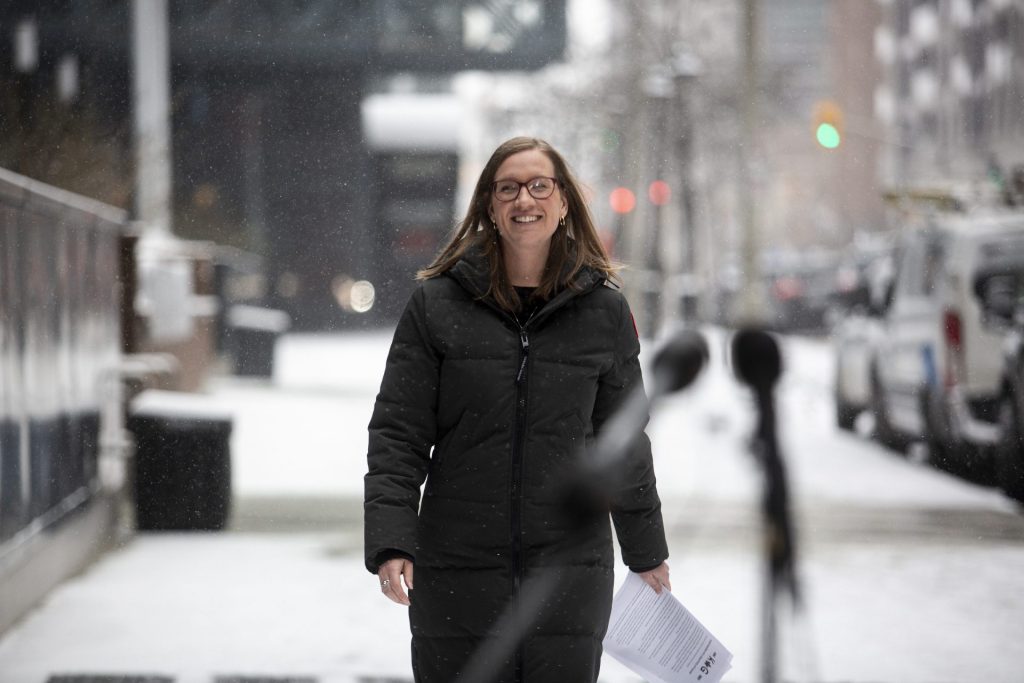
Several successive polls have come to similar conclusions. A new report by Leger dubs Carney the “clear front-runner” in its latest poll conducted between Jan. 24 to 26, with 34 per cent overall support saying he should replace Trudeau, and 57 per cent of Liberal supporters sharing that opinion. Freeland trails with only 14 per cent of all respondents seeing her as the natural successor, and 17 per cent among those who vote red. Gould scored four per cent with both populations.
The survey of 1,527 Canadian adults also found Carney was regarded as the best suited to manage Canada’s relationship with the Trump administration.
Another poll by Ekos Politics, which has been tracking the rise in federal Liberal fortunes—especially in Ontario—notes the Conservative lead started narrowing after Trudeau’s Jan. 6 retirement announcement and the “acceleration of this trend” became clear in their polls about two weeks ago.
“It was contemporaneous with the entry of Mark Carney to the race, which appears to be a factor,” according to the survey analysis. Both Freeland and Gould also entered the race soon after Carney’s announcement.
The Hill Times
Correction: This article was updated on Jan. 31, 2025, to reflect that as of Jan. 30 Carney has at least 62 MPs supporting him, including 20 members of cabinet supporting him, not 21. It also corrected that Freeland has at least 25 MPs, not 26 on The Hill Times‘ list as of Jan. 30.






 LICENSING
LICENSING PODCAST
PODCAST ALERTS
ALERTS













